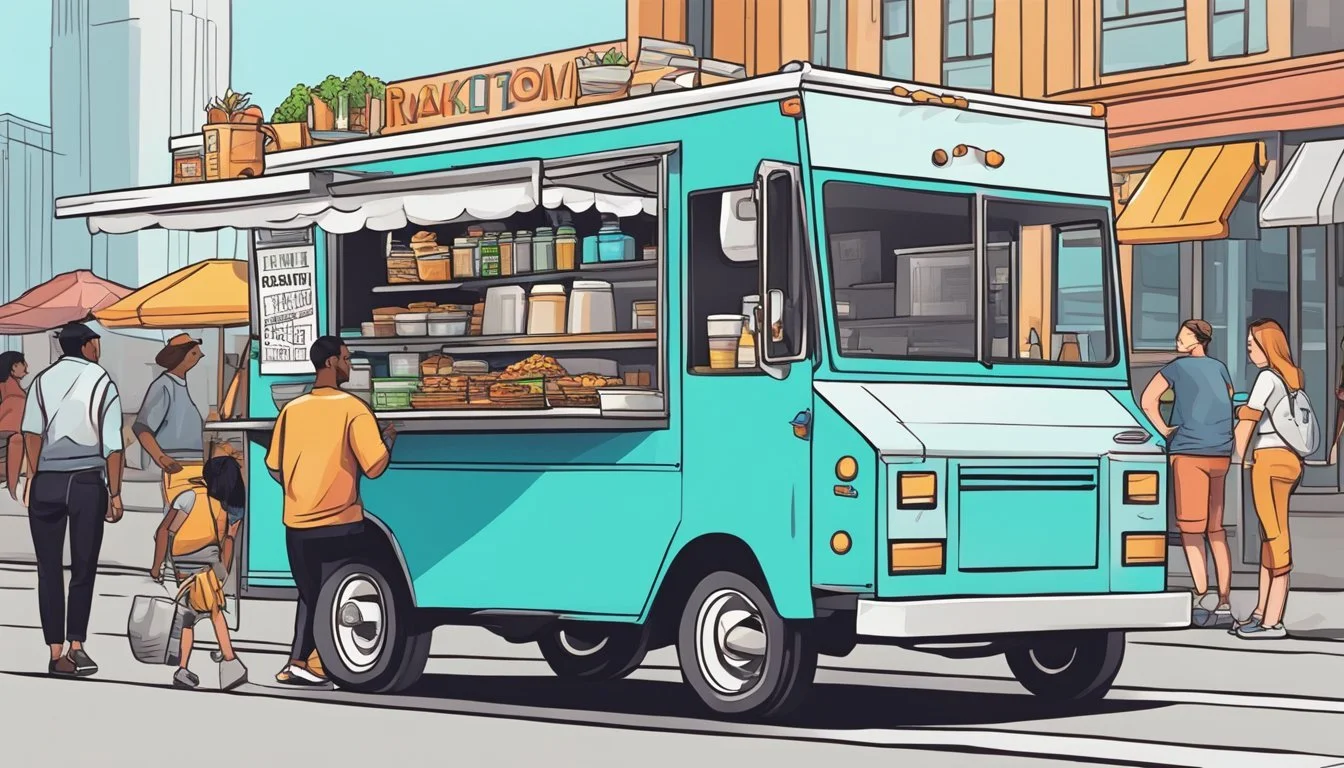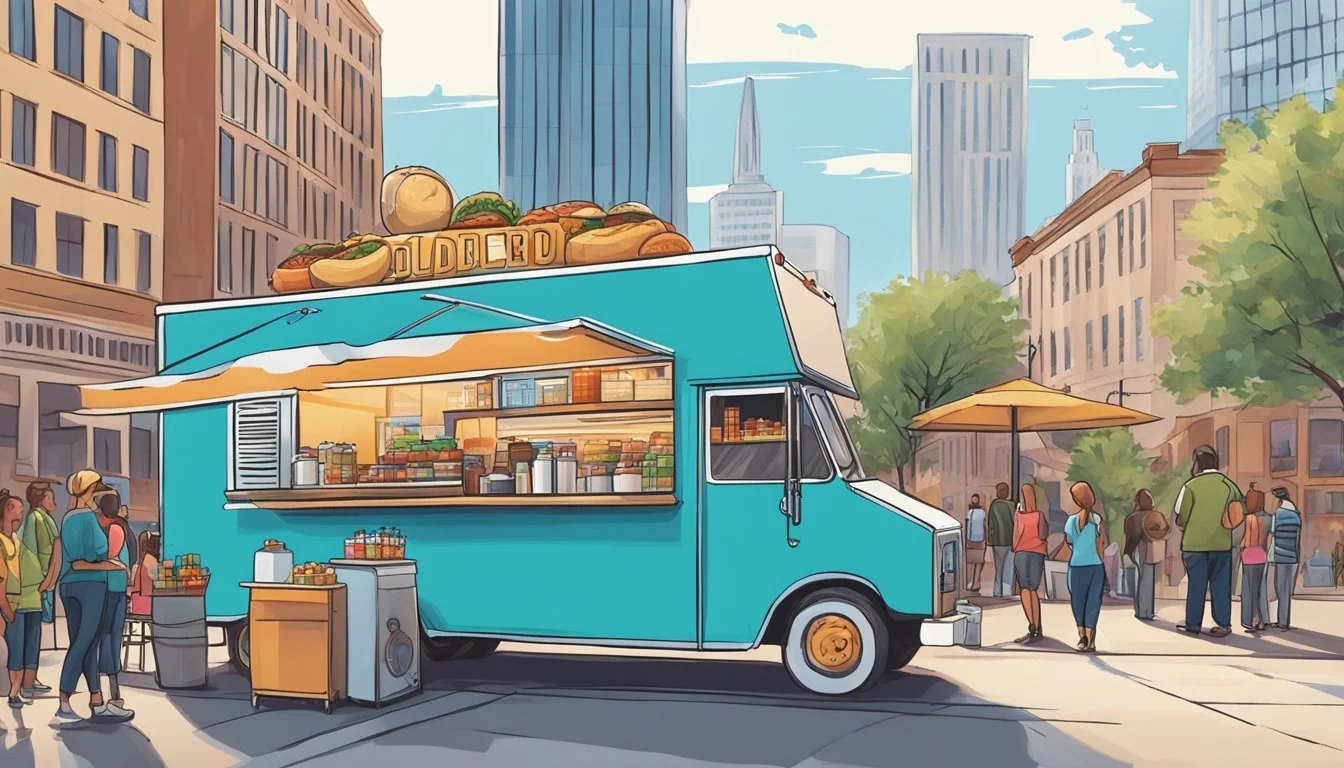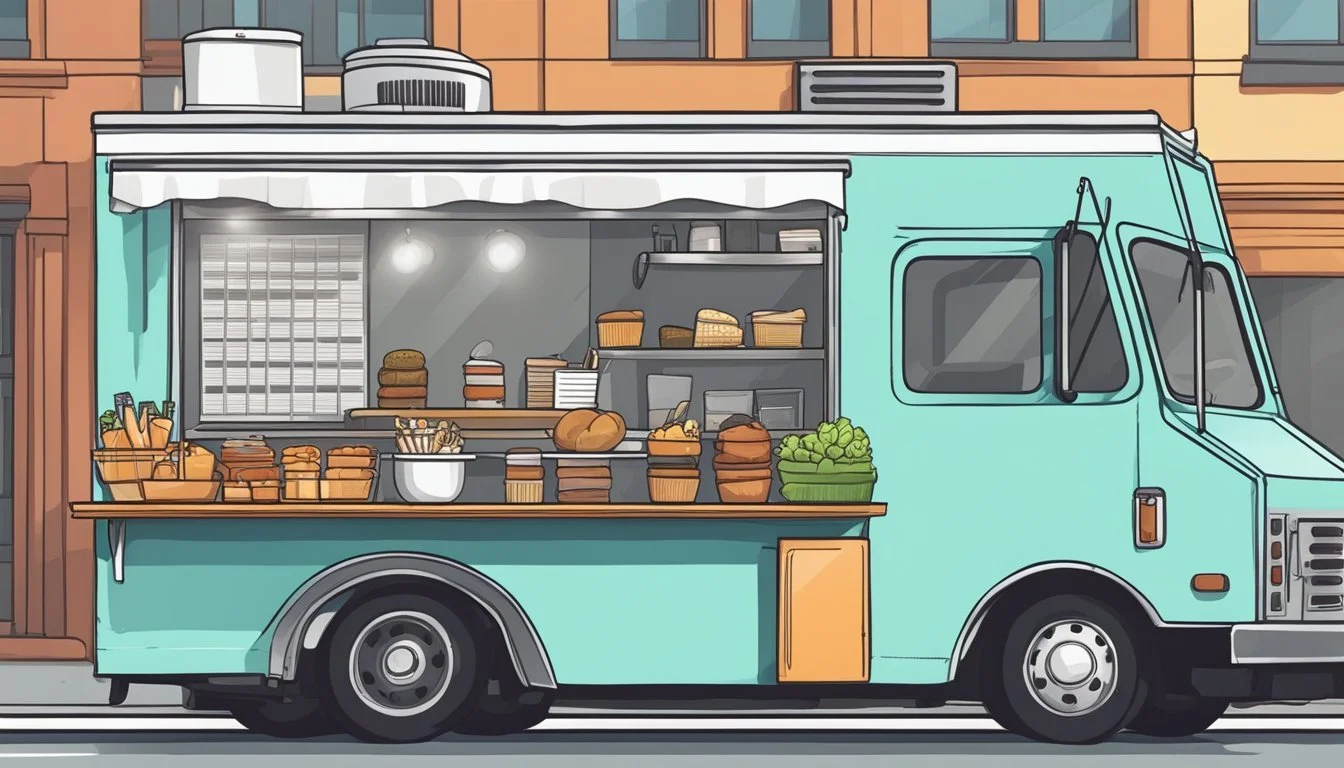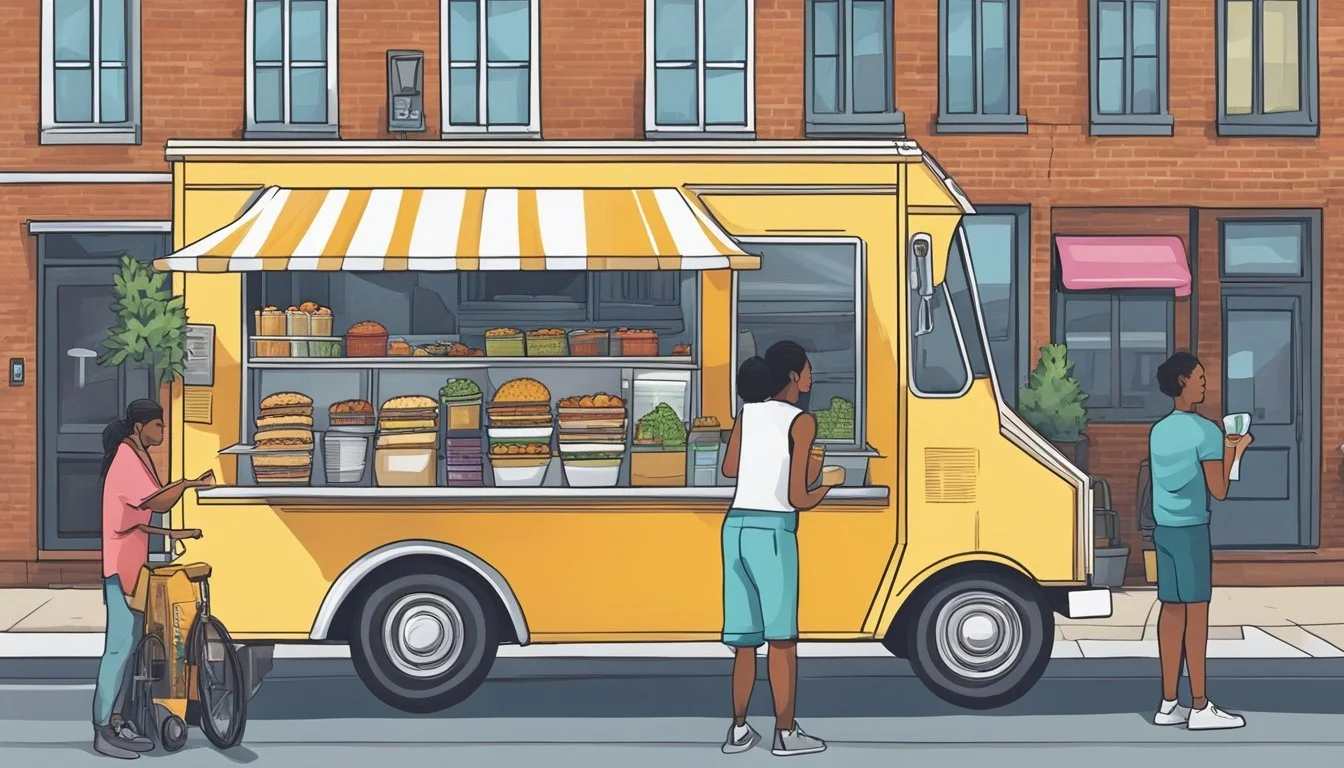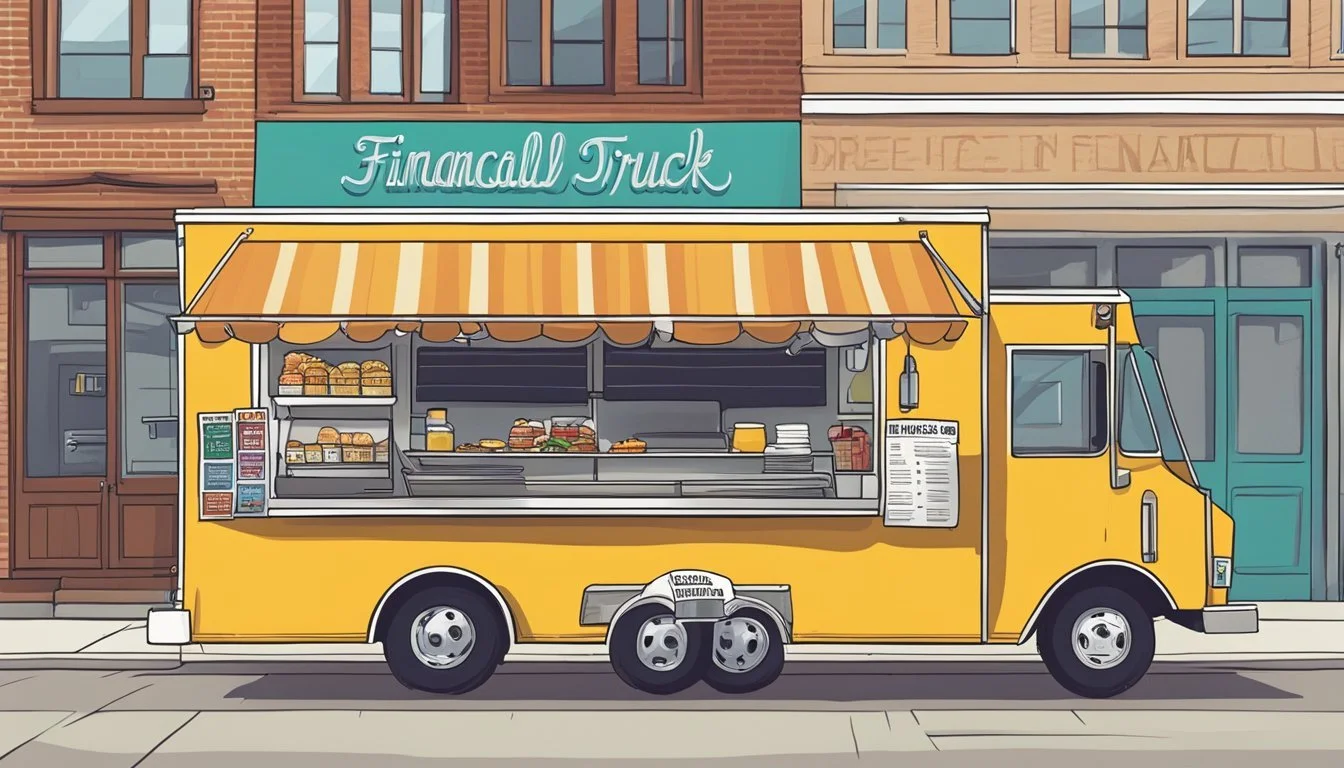Food Truck Laws Oklahoma City, Oklahoma
Regulations and Compliance Guide
Operating a food truck in Oklahoma City is subject to local regulations designed to ensure food safety and business compliance. Before launching a mobile food business, owners must navigate through a set of legal requirements, including acquiring specific licenses and permits. Oklahoma City has clear guidelines that encompass the operation of all vehicles—such as wagons, trucks, and carts—used to sell consumables.
The process begins with a strong business plan, followed by applying for necessary documentation and receiving approvals from various city and county agencies. For instance, obtaining a vehicle food sales license is essential, as is securing a food service establishment permit if the food truck requires a physical service location. Compliance with the Oklahoma Tax Commission for sales tax permits and submitting to health inspections conducted by the Oklahoma City-County Health Department are also crucial steps.
Securing the correct licenses and permits, ensuring vehicle readiness, and passing health inspections are just the top layers of a multi-tiered procedure for food truck owners in Oklahoma City. Staying informed on municipal codes and health regulations helps these entrepreneurs operate successfully and legally within the city.
Overview of Food Truck Business in Oklahoma City
In Oklahoma City, the food truck industry has carved out a unique space in the local food scene. Vendors who choose to embark on a food truck venture must navigate a series of legal and regulatory steps to ensure compliance with both local and state guidelines.
Legislative Framework The State of Oklahoma mandates that food trucks, much like traditional restaurants, obtain proper business licenses and food handler's permits for all employees. There's also a need for a specific food truck license, often referred to as a mobile food facility permit. Follow this detailed guide for starting a food truck business in Oklahoma.
Required Permits and Licenses:
Business License
Food Handler's Permit
Seller's Permit
Mobile Food Facility Permit
Vendors must ensure that their food trucks meet the construction and equipment standards set by the state to pass inspections crucial for obtaining operation permits. More information on these requirements can be found in the Oklahoma.gov guide.
Health and Safety Compliance Operating a food truck also means upholding strict health and safety practices, including proper labeling of food items as dictated by the Oklahoma Department of Agriculture, Food, and Forestry, which includes ingredients, nutritional value, and allergen statements when applicable. A comprehensive list of requirements can be found at the Food Handler's Guide.
Local Oversight Additionally, local ordinances must be observed. For instance, the City of Oklahoma City has its own set of rules and contacts that are instrumental in the food truck approval process. Prospective food truck operators can use resources such as the OCCHD checklist to track progress in setting up their mobile food business.
Understanding these directives is paramount for food truck owners to avoid potential fines or penalties and to successfully contribute to the vibrant landscape of Oklahoma City's food culture.
Starting Your Food Truck Business
Starting a food truck business in Oklahoma City requires meticulous planning and adherence to a set of specific regulations. Entrepreneurs must navigate the legal framework, ensure compliance with health and safety standards, and acquire necessary permits.
Business Planning and Entity Formation
Before launching a food truck, it is essential to develop a comprehensive business plan that outlines the business strategy, market analysis, and financial projections. The plan should address funding sources and projected expenses such as permit fees. Upon planning, the next step is to form a legal business entity, such as an LLC, to operate within Oklahoma's regulatory environment.
Food Truck Licensing and Permits
Acquiring the right licenses and permits is a critical step. A Business License and a specific Food Truck License are required to legally operate. The permit fee varies depending on the location and the type of food sold. In addition, there may be a requirement for a Food Establishment Permit and a Vendor Permit, which are issued by the Oklahoma State Department of Health or the local health department.
Health and Safety Compliance
To ensure public safety, food trucks in Oklahoma City must meet strict food safety standards. Compliance with these standards includes passing routine inspections that assess temperature control, proper ventilation, and other safety regulations. Food handlers must obtain a Food Handler's Permit to demonstrate knowledge of safe food handling practices. Adherence to health and safety compliance is monitored by the Oklahoma State Department of Health.
Regulatory Requirements
Entrepreneurs looking to navigate the food truck industry in Oklahoma City must adhere to a set of stringent regulations to ensure compliance and safe operation. Each regulation is put in place to ensure not just the safety and wellbeing of customers, but also the orderly conducting of business within the city.
Zoning and Parking Regulations
In Oklahoma City, food trucks must observe zoning and parking regulations that designate specific areas for operation. These trucks are generally prohibited from vending within certain distances from residential areas and schools unless part of a sanctioned event. It is imperative that operators obtain the necessary permits and adhere to the restrictions determined by the Oklahoma City municipal authorities.
Food Safety and Equipment Standards
The Oklahoma State Department of Health mandates strict standards for food safety and equipment in all food service establishments, including food trucks. Operators must ensure that their food truck has the proper ventilation, maintains meat and other perishables at the correct temperature, and conforms to all labeling requirements. Every food truck needs a valid health license, which attests to their compliance with these standards.
Sales and Tax Compliance
All food truck operators are required to comply with the sales and tax regulations stipulated by the Oklahoma Tax Commission. This includes obtaining an Oklahoma sales tax permit and ensuring timely tax payment. Sales tax must be accurately calculated, collected from customers, and reported to state and local tax authorities as required by law.
Alcohol and Special Product Regulations
When it comes to the sale of alcohol by food trucks in Oklahoma City, operators must secure a liquor license from the state. This is heavily regulated, and the state imposes specific conditions which must be met to sell alcoholic beverages legally. These conditions typically include but are not limited to, distance from schools and churches, as well as adhering to the guidelines for the responsible service of alcohol.
Operational Management
Managing a food truck in Oklahoma City requires meticulous attention to day-to-day activities, strict adherence to health and safety regulations, and proactive supply chain oversight to ensure that every service is performed to the city’s standards.
Day-to-Day Operations
A food truck operator must ensure consistent quality and service each day. This includes performing routine equipment checks, managing inventory levels, and adhering to operational hours as mandated by local laws. Each food service establishment on wheels must have a designated person in charge who is responsible for daily operations and who understands the specific requirements for food storage, preparation, and service.
Routine tasks include:
Checking cooking equipment
Restocking inventory
Cleaning and sanitizing work areas
Inspection and Compliance
Regular inspections play a pivotal role in maintaining compliance with Oklahoma City’s food truck regulations. Food trucks must pass health inspections similar to stationary food service establishments, ensuring all aspects of operation meet or exceed health codes. An inspection checklist typically includes verifying the presence of a stem-type probe thermometer accurate to +/-2°F, as required for measuring food temperatures, especially meat, to prevent foodborne illness.
Key inspection points cover:
Food safety
Equipment sanitation
Proper food handling
Menu and Supply Chain Management
Effective menu and supply chain management ensures the availability of fresh ingredients and the upholding of food quality standards. Food items must come from an approved source, maintaining a chain of safety from supplier to service. Menus should be designed with an understanding of ingredient availability and should avoid offerings that risk frequent out-of-stock situations.
Supply chain factors include:
Supplier reliability
Ingredient quality
Delivery schedules
Financial Considerations
When starting or operating a food truck in Oklahoma City, financial management is as crucial as the cuisine served. Understanding and effectively handling the costs, ensuring proper insurance coverage, and navigating the potential financial setbacks from fines and penalties are imperative for sustainability and success.
Cost and Funding Options
The initial cost of launching a food truck business in Oklahoma City can be substantial. One must consider permit fees, purchase or lease of a vehicle, kitchen equipment, and the cost of ingredients. Funding options may include small business loans, personal savings, or investor capital. The Oklahoma Tax Commission oversees sales tax regulations which food truck owners must integrate into their sales strategy, ensuring payment compliance.
Insurance and Liability
Liability insurance is essential for any business, especially mobile food service establishments which face unique risks. Coverage can protect from issues such as customer illness due to food consumption or accidents related to the operation of the truck. It is advisable to consult with an insurance provider experienced in food service to find a plan that caters to specific needs within Oklahoma City's regulatory framework.
Handling Fines and Penalties
Food truck operators should be well-versed with Oklahoma City's health and safety codes to avoid fines and penalties that can result from non-compliance. These financial penalties can impede business operation and impact profitability. Establishing a regular review and compliance check system is advised to mitigate the risk of incurring such fines.
Support and Resources
For entrepreneurs eager to navigate the food truck business landscape in Oklahoma City, an array of supportive services and resources exist. These offer guidance through legal, health, and business development stages to ensure compliance and success.
State and Local Health Departments
The Oklahoma State Department of Health and the local health departments play a crucial role in the mobile food service industry. They are responsible for providing necessary health inspections and guidelines for ensuring public safety. Food trucks require a vehicle inspection sanctioned by the Oklahoma Department of Environmental Quality. Additionally, the Oklahoma City-County Health Department must be contacted for an inspection, pivotal for the approval of operational licenses.
Business Development Services
Entrepreneurs in Oklahoma City can take advantage of business development services tailored to assist with menu development, business planning, and funding strategies. The City of Oklahoma City provides an Online Business Licensing platform for a streamlined application process. These services offer the tools needed for businesses to comprehensively prepare for the unique ecosystem of food truck operation.
Legal and Professional Assistance
Obtaining legal and professional assistance is advisable for navigating the complex system of permits and regulations. The services rendered by legal professionals ensure that all forms, permissions, and local codes are addressed correctly. Moreover, legal experts assist with compliance to the Municipal Code stipulated by Oklahoma City, which is essential for vehicle food sales and maintaining food safety standards.
Advanced Topics for Established Food Trucks
As established food trucks in Oklahoma City consolidate their market position, they must explore advanced strategies relating to technology, growth, and regulatory compliance to maintain and expand their success.
Incorporating Technology and Marketing
In today's digital age, food truck businesses are leveraging cutting-edge technology to enhance customer experience and streamline operations. Integrating mobile ordering systems and leveraging social media platforms for real-time updates and promotions have proven to be effective in increasing sales and customer loyalty. A strong online presence, coupled with targeted digital marketing campaigns, can effectively reach broader audiences and convert them into regular patrons.
Expansion and Franchising
When a food truck business is ready to grow, considering expansion through franchising can be a lucrative move. It involves detailed planning, from choosing the right franchisees to ensuring brand consistency. Essential factors include:
Developing comprehensive operational manuals
Structuring training programs for franchisees
Maintaining stringent quality controls to uphold the reputation of the food truck brand
Successful expansion also requires adherence to state-specific franchise laws, so working with an experienced franchise attorney is often a wise investment for a food truck business.
Navigating Changes in Laws and Regulations
Regulatory compliance is a dynamic challenge for food trucks due to periodic changes in state and local laws and regulations. For instance, food safety regulations may be updated, and failure to comply can lead to hefty fines or even suspension of operations. It is crucial for food truck operators to:
Stay informed of regulatory changes through official channels such as the Oklahoma City County Health Department
Proactively adapt their operations to meet new requirements, such as acquiring additional permits or retrofitting trucks to comply with health codes
Foster ongoing relationships with local regulators to ensure any compliance issues are promptly addressed
By staying ahead of these changes, food truck businesses can not only avoid penalties but also position themselves as industry leaders in regulatory compliance.
Additional Considerations for Oklahoma City
When establishing a food truck business in Oklahoma City, there are specific licensing requirements and local regulations that operators must adhere to, beyond state and federal guidelines.
Oklahoma City Specific Licensing
Operators must secure various permits, such as the food handler's permit and a certificate of occupancy, ensuring that the truck meets health, safety, and zoning requirements. The Oklahoma City County Health Department oversees health inspections, while the Oklahoma Department of Agriculture ensures compliance with food safety standards. Food trucks in Oklahoma City typically require a $100 fee for Vehicle Food Sales licensing; if adding six special events, the fee is $150.
Local Bylaws and Community Engagement
Local ordinances may impact where food trucks can operate, such as proximity to abandoned buildings or residential zones, and the urban chickens & quail bylaws may affect food sourcing options. Community engagement is key, and operators should be aware of the growing interest in medical marijuana edibles, which requires careful adherence to strict licensing and food preparation regulations. Moreover, food truck operators looking to enhance their setup may need a contractor license when considering structural modifications or utility installations on their vehicles.

